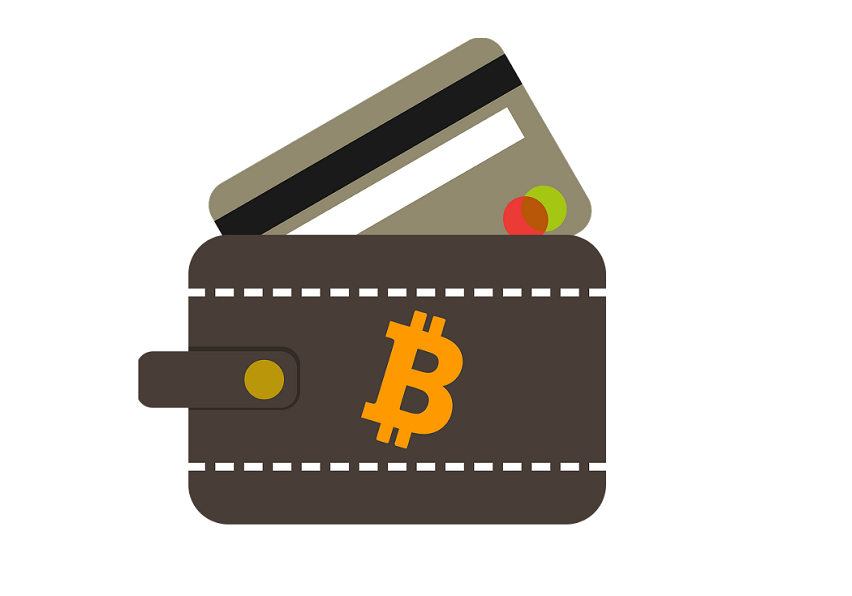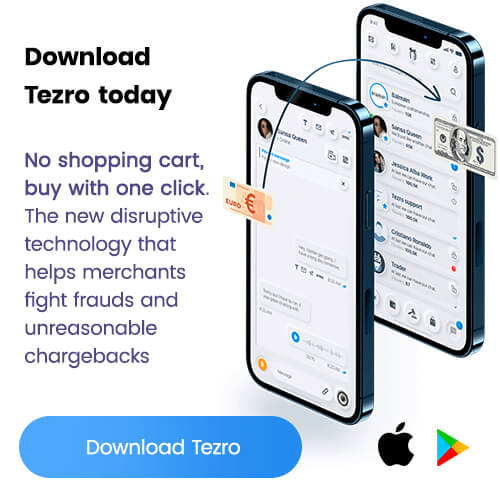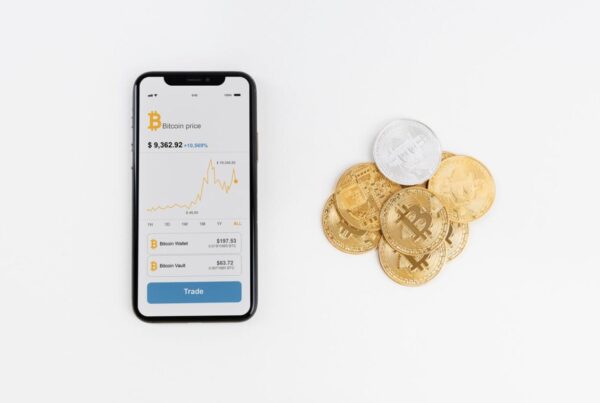On its own, the very idea of cryptocurrency should not make any sense at all – a digital form of currency that has no tangible value whatsoever. Unlike fiat currencies i.e. paper money, cryptos cannot be held or stored physically.
The lack of a physical form and the ability to transfer value digitally is what has made Bitcoin and a selection of other cryptocurrencies so popular during the early 2000s.
Essentially, cryptocurrencies function as a store of value that can be anonymously transferred between individuals. This was why Bitcoins were first used on the deep web in order to facilitate sometimes illegal transactions.
The anonymity offered by Bitcoins and the ease of transference has made it a favorite of individuals operating on the fringes of society. In recent times however, Bitcoin has also been seen as a solid investment and an excellent store of value.
With all of that in mind, you may be wondering; how do you actually buy things with Bitcoin? After all, Bitcoin exists only in the realm of the digital and lacks any tangible presence.
By answering these questions, you’ll be able to determine which crypto wallet would be suitable for you.
That is indeed a good question, which brings us to the topic of wallets. Cryptocurrency wallets to be precise.
What is a Cryptocurrency Wallet?
So, let’s get crypto wallet explained correctly. Cryptocurrency wallets are software programs or apps that enable users to store and retrieve both public and private keys. These keys communicate with other blockchains in order to help you monitor your balance, send and receive funds and perform a variety of other functions.
The blockchain is essentially a directory that stores a record of all your transactions. Keys are used to authorize the transfer of Bitcoin ownership between users.
For example, you buy a pair of shoes from Frank over the internet with Bitcoin. When paying for your purchase, the public key stored on your wallet is unlocked by the public key on Frank’s wallet.
This authorizes Frank to transfer the ownership of Bitcoins in your wallet thus allowing him to access said funds. From here, the balance in your wallet is decreased while the balance of coins in Frank’s wallet rises.
When transactions are made with Bitcoins, no actual transference actually occurs. What goes on is essentially a change in ownership which unlocks said funds and allows for them to be used.
Why do you need a wallet for Cryptocurrency and how does it work?
While you won’t need a wallet to buy things with cryptocurrency, wallets are an excellent way of storing cryptocurrencies. They allow you to store all of your cryptos in a single, secure location.
Given the nature of the crypto industry, security should always be at the back of your mind. This is why people often ask the question; are crypto wallets safe?
Dealing with unscrupulous individuals over the internet can easily result in you being scammed of your cryptocurrencies with little to no recourse. This is why it’s important that you understand the types of crypto wallets that are available to you.
How to get a Crypto wallet?
There are plenty of different ways that you can get a crypto wallet. Given the popularity of Bitcoin and other cryptocurrencies, many people want to know how do crypto wallets work. To sum up, they have exploded in popularity in recent times.
The simplest way to get a cryptocurrency wallet would be to sign up for one online. These wallets are usually available for free and can easily be obtained.
For more advanced users, you may want to take a look at the different types of crypto wallets available to you.
What are the different types of Cryptocurrency Wallets?
Now that you know how cryptocurrency wallets work, let’s take a look at the types of wallets available to you. For starters, wallets can be defined as being either hot or cold types.
1. Hot wallets
Hot wallets are online or web-based storage solutions. These are the most common types of wallets that are utilized by most crypto enthusiasts and exchanges.
Pros of using Hot Wallets:
- Allows for easy accessibility to funds
- Most popular type of wallet
- Usually offered as free cryptocurrency wallet
Cons of using Hot Wallets:
- Vulnerable to malicious/hack attacks
- Requires a full-time internet connection
Types of Hot Wallets:
Desktop: these wallets are downloaded and installed on either a desktop PC or a laptop. They offer a higher degree of security as the wallet can only be accessed on the PC that it has been installed on. One drawback of the desktop crypto wallet is its susceptibility to hack attacks and outright theft.
Online: online wallets are cloud-based solutions that enable users to access their funds from just about anywhere. From smartphones to laptops, online wallets are one of the most flexible wallet solutions.
Because they are managed by a third-party service provider, this leaves them vulnerable to hacks and digital heists.
Mobile: true to their namesake, mobile wallets are apps installed on a smartphone. This provides users with a high degree of mobility. With the widespread acceptance of Bitcoin, mobile wallets allow users to make payments on the go thus answering the long-asked question; what can you buy with cryptocurrency?
However, mobile wallets are also one of the least secure methods for storing cryptocurrencies. The tendency for smartphones to be lost or stolen presents a major security risk. Hence mobile wallets should only be used to store a limited quantity of cryptocurrencies.
2. Cold wallets
Where hot wallets allow for quick and easy access to cryptocurrencies, cold wallets are the direct opposite.
Pros of using Cold Wallets:
- Safe and secure way of storing cryptocurrencies
- Allows you to manage your crypto security personally
- Able to add a physical barrier to protect your assets i.e. safes
Cons of using Cold Wallets:
- Can make funds difficult to access
- Difficult to process payments
- Not entirely free of security risks
Types of Cold Wallets
Hardware: allows for crypto keys to be stored on either a hard disk or USB stick which in turn can be kept in a secure location. In order to access the keys stored, users will be required to input a password or pin number thus providing an additional layer of security.
While significantly less flexible, cold wallets offer a significantly higher level of security as they are immune from hackers and other malicious attacks.
Paper wallets: Besides making use of external hardware, paper wallets are another means of storing cryptocurrency assets offline. This is done by printing out your crypto keys onto a sheet of paper or some other type of printable material – an approach which offers equal amounts of security and mobility to the user.
It should be noted that paper wallets are risky in the sense that the sheet of paper could easily be stolen or misplaced thus allowing a stranger to gain access to your funds
Multi-currency or single use?
It goes without saying that Bitcoin is by far, the most widely traded type of cryptocurrency available on the market today. However, you may have your reasons for trading in other cryptocurrencies i.e. investment or diversification.
Thus, when choosing a crypto wallet, ask yourself if you’ll be looking to trade in multiple currencies or just one-type. Most wallets cater for a variety of different currency types – so you’ll have the freedom to choose between a multi currency crypto wallet or a single currency one.
Are there any fees to use a Crypto Wallet?
Most of the time, crypto wallets do not charge fees of any kind – so you won’t need to worry about being hit with transactional fees.
Given the nature of blockchain transactions, you may sometimes be required to pay a small service fee should you wish for your transaction to be given a higher priority.
Usually, the costs come up to approximately $0.12 – a tiny amount to pay in exchange for a near instantaneous transfer.
Are Cryptocurrency Wallets secure?
The crypto industry has improved significantly in terms of security and accountability in recent years. However, given the unregulated nature of the industry, there is still an element of risk involved.
Hence if you’re looking to safeguard your assets, it would be best to store the bulk of your cryptocurrency holdings in a cold wallet where it is significantly safer.
How to keep your Cryptocurrency Wallet safe and secure?
As a rule of thumb, practicing good internet safety hygiene is a must if you are to keep your crypto wallet out of the wrong hands. First, learn how to set up a crypto wallet safely and avoid using shady providers. Also, whether you’re using a mobile or paper wallet, always be aware of your surroundings and always keep track of your transactions.
When using a desktop wallet, avoid visiting questionable websites and do not leave your device on for extended periods of time. Failing to do so will provide hackers with the opportunity to hack into your crypto wallet and steal your funds.
Are Cryptocurrency wallets anonymous?
While the biggest draw of cryptocurrencies was the anonymity offered to users, this assumption has lulled many into a false sense of security.
While your crypto wallet may not be tied directly to your identity, you would do well to remember that your transactions are stored and recorded on the blockchain. This is a form of pseudo-anonymity that offers you a certain degree of privacy.
However, with some effort it can be possible for you to be linked to your crypto wallet. So the answer is a mix of yes and no.
While your identity is protected to a limited extent, it can still be found out by a dedicated investigator.
How to choose the best Cryptocurrency wallet?
When choosing the best cryptocurrency wallet, you need to ask yourself the following questions:
- How often will I be transacting in cryptocurrencies?
- Should I use multiple currencies or a single one only?
- Are my cryptocurrencies an investment or for more practical purposes?
By answering these questions, you’ll be able to determine which crypto wallet would be suitable for you.











